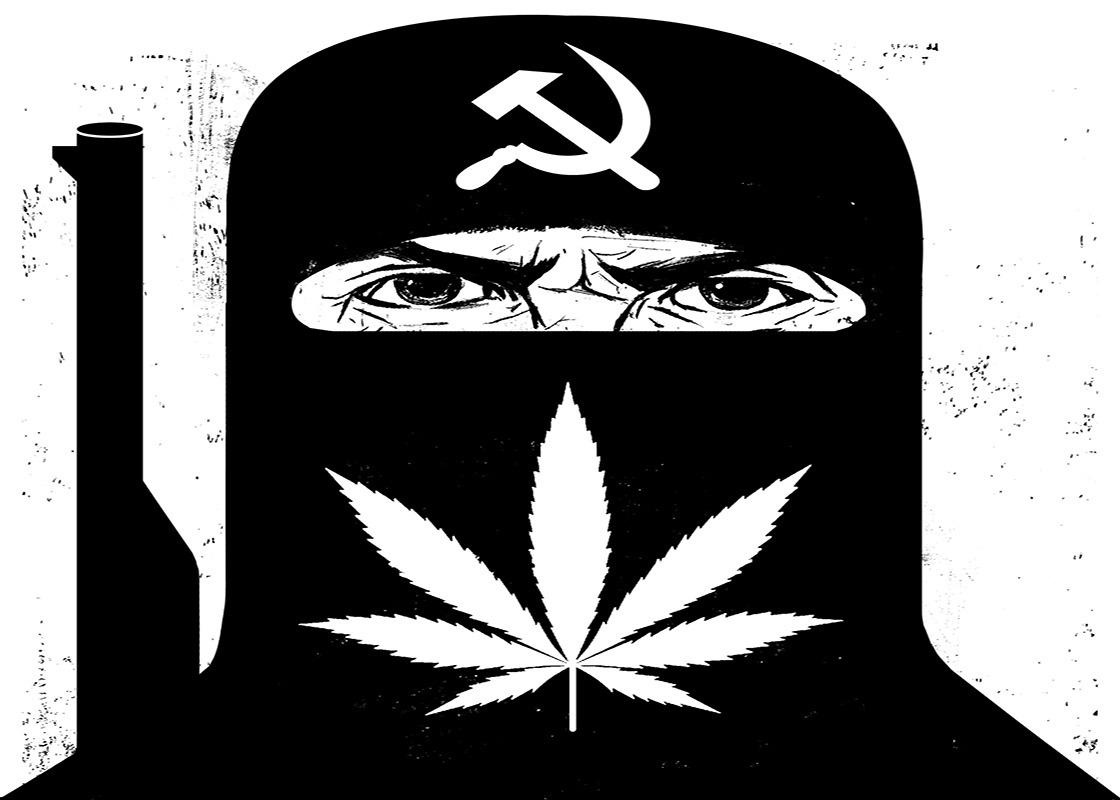In February 2016, the U.S. Drug Enforcement Agency (DEA) announced that, with the help of some European partners, it had partially busted a “massive” drug trafficking and money-laundering operation being conducted by “Lebanese Hezbollah’s External Security Organization Business Affairs Component (BAC).”
Observers familiar with repeated U.S. attempts to stigmatize Hezbollah with the narco-terrorist label should be forgiven for their skepticism over the renewed charges. Never mind that Hezbollah has never mentioned an External Security Organization; Western experts know best. And clearly, anyone with a “BAC” must be super-serious about drugs.
According to the DEA, members of the Hezbollah BAC had “established business relationships with South American drug cartels, such as [Colombia’s] La Oficina de Envigado, responsible for supplying large quantities of cocaine to the European and United States drug markets.” Proceeds from drugs and money laundering were then allegedly used to buy weapons for the Syrian war effort.
This was not the first time the United States had claimed to catch the Party of God red-handed with illicit substances—although this particular plot was somewhat inferior to previous ones in terms of entertainment value. For years we’ve been treated to breathless reports, often courtesy of concerned neoconservative and Zionist think tanks and individuals, about Hezbollah’s Iran-backed narcotic incursions into our very own hemisphere.
We’ve seen Hezbollah waging “cocaine jihad,” instructing Mexican drug lords in the arts of bomb-making and narco-tunnel construction along the U.S. border, collaborating with Brazilian prison gangs, establishing sleeper cells and training camps willy-nilly, and participating in transatlantic drug runs with great ease—according to one prominent U.S. expert—thanks to Venezuela’s alleged “geographic proximity to West Africa.” In 2010, Rep. Sue Myrick (R-N.C.) alerted the Department of Homeland Security to the idea that droves of incarcerated gang members in the United States were suddenly sporting tattoos in Farsi. Another enduring favorite among the fearmonger set is the fact that it is possible to travel by air from Caracas to Tehran, which can only mean bad things.
The Hezbollah-in-our-backyard hype serves a number of convenient functions. It renders the organization a direct threat to the homeland, justifying both continued U.S. militarization of Latin America and ongoing antagonism toward Iran on a global level. Particularly during the final years of Venezuelan leader Hugo Chávez, who died in 2013, U.S. propaganda conflating various national nemeses into a single Islamo-socialist narco-jihadi-terror menace lurking just across the southern border sought to discredit a whole lot of folks in one fell swoop.
As’ad AbuKhalil, a Lebanese-American political science professor at the University of California, Stanislaus, remarked in a recent email to me on the barrage of narco-allegations leveled against Hezbollah: “They actually remind me of the Cold War days when I first came to the United States and I would read fantastic claims by Zionist groups trying to connect any and every Palestinian group to various communist plots worldwide.” Perhaps some Zionist or Saudi propagandists would also like to link Hezbollah to global warming, he suggested.
Lebanese scholar Amal Saad, author of Hezbollah: Politics and Religion and an upcoming title from Palgrave Macmillan on the party’s transformation from national resistance into regional power, told me that Hezbollah’s growing influence in the region—where it now confronts not only Israel but also “other U.S. allies and surrogates”—has resulted in an intensification of U.S. “demonization techniques.”
Under the Trump administration, Saad said, there’s been “an escalation of bellicose U.S. rhetoric depicting Hezbollah and Iran as an even graver threat to Americans than ISIS and Al Qaeda.”
The current “full-out criminalization” of Hezbollah and its portrayal as a narco-terrorist group, she continued, also aims to destroy the organization’s legitimacy “by detracting from its Islamic religious credentials and tarnishing it with drug money.”
Case in point: on June 8 of this year, a House Foreign Affairs Committee hearing on the subject of “Attacking Hezbollah’s Financial Network” was chaired by Rep. Ed Royce (R-Calif.), who defined Hezbollah as “one of the top terror threats in the world” and a drug-trafficking outfit extraordinaire.
In its write-up of the hearing, The Washington Free Beacon summarized expert testimony, according to which Hezbollah “has morphed into a transnational criminal terrorist organization . . . relying on cocaine and heroin trafficking and partnerships with Latin American drug cartels.” One takeaway of the committee gathering was that the FBI and various U.S. law-enforcement agencies “need more resources to tackle the financial backbone” of the morphed group.
The topic of organizational and government finances recalls the reason the whole “narco-terrorist” designation exists in the first place. In a 2015 New Yorker piece titled “Trafficking in Terror,” Pulitzer Prize–winning reporter Ginger Thompson discussed an obscure provision in the 2006 renewal of the Patriot Act that established the new crime of narco-terrorism, marketed by the DEA as a “preeminent threat” to the homeland.
With each ostensible victory on the narco-terror front, Thompson explained, the DEA lobbied Congress for more money. But in all of the cases prosecuted thus far, “the only links between drug trafficking and terrorism entered into evidence were provided by the DEA, using agents or informants who were paid hundreds of thousands of dollars to lure the targets into staged narco-terrorism conspiracies.”
Thompson went on to quote a former senior money-laundering investigator at the U.S. Justice Department who told her that the post-9/11 migration of resources “out of drug enforcement and into terrorism” meant that narco-terrorism became an “expedient way for the [DEA] to justify its existence.”
None of this is to suggest that it’s impossible that any drug-related funds have ever ended up in Hezbollah’s coffers. The organization has supporters around the world, and many people in these networks happen to have links to the drug trade.
But politically and financially motivated hysteria over Hezbollah’s alleged position at the helm of a global Islamo-narcotic empire becomes even less persuasive in light of the U.S. government’s own history of alliances and collaboration with drug cartels and traffickers in this hemisphere and beyond.
America’s narco-résumé includes everything from helping the Nicaraguan contras profit from drug running in the 1980s—an arrangement that contributed to a crack cocaine epidemic that devastated communities in South Central Los Angeles—to present-day collusion with Mexican drug cartels.
Is it too much to wonder, on the never-ending drug front, whether the safety and interests of U.S. citizens haven’t historically been more imperiled by the policies of the government itself than by those of the narco-terrorist bogeymen we’ve pursued at such staggering human and financial cost?
Belén Fernández is the author of The Imperial Messenger: Thomas Friedman at Work, published by Verso, and Martyrs Never Die: Travels through South Lebanon, published by Warscapes. She is a contributing editor at Jacobin magazine.







PLEASE DEMAND F.D.A. and D.E.A. REFORM.
These idiots will say or do anything to cover their own incompetency and support their failed drug war. More than ever people are beginning to realize what science has known all along. T.H.C is actually a major nutrient. like vitamins C.D. or A. Our endocannabinoid system Is designed for the utilization of cannabis (smoking not recommended). Also; many of the disease’s that respond to cannibals is because they were caused by Clinical endocannabinoid deficiency (CECD) A science the D.E.A. has suppressed for decades. T.H.C. is the nutrient required and used by our body to regulate pain, stop cancer replication and very many other vital and critical uses as well. Also for our psychoactive requirements..